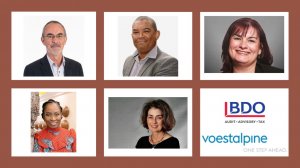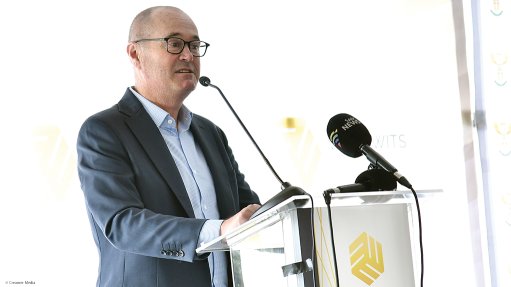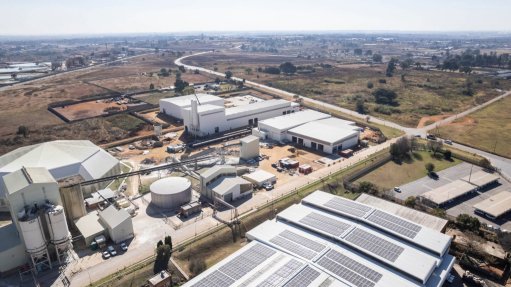Competition, collaboration needed for an efficient logistics network in South Africa

A panel of experts discuss the current state of South Africa's transport and rail systems and what needs to be done to improve the country's logistics performance.
Competition is important to create efficiencies in the logistics and transport network, but collaboration is similarly necessary to ensure that all the public and private sector role-players can fulfill their roles in the recovery and improvement of South Africa's underperforming logistics systems.
Transportation experts during the 'How to deliver socioeconomic development through a stronger transport system' webinar, hosted by Creamer Media on October 18, emphasised that transportation and logistics were essentially about the economy and stressed that the design of the network must suit the needs of the users and communities.
"There is a clear need to bring parties together and a need for all parties to understand the reality of the costs of the crisis and the costs of the recovery plans that are being put forward, as well as their impact on government budgets," said accounting, auditing and advisory company BDO advisory services director Christelle Grohmann, who moderated the discussion.
South Africa has a very open trade economy and depends on exports and imports for 60% of its gross domestic product. Further, 95% of all trade is in goods and products, which must be transported, highlighted industry organisation Minerals Council South Africa chief economist Henk Langenhoven.
"In terms of local production, it is about the size of the market for products going into the rail network and ports. A perennial problem for South Africa is that the local market is too small to support the economies of scale required for local producers to compete with other suppliers.
"Further, while our economy is multiple sizes larger than it was in the 1990s, the last time South Africa expanded its harbour capacity was Coega in the 1990s. Given how important trade is for us, we have outgrown the capacity on the important corridor lines. We are not keeping up in terms of capacity of our rail lines and harbours, nor with the efficiency that we need.
"Rail is the most efficient way to move bulk commodities, such as from mines. However, despite the importance of trade and the need for mining companies to move product to clients, [State-owned] Transnet cannot even fulfill its contracted obligations to mining companies and other customers, and the services are nowhere near the design capacity of the infrastructure," Langenhoven noted.
Open, or non-discriminatory, access to the country's logistics infrastructure, which would remain in State ownership, was important to create competition in the network to pick up efficiencies, said National Logistics Crisis Committee (NLCC) member and South African Presidency project management office head Rudi Dicks.
"Given the example of what happened when embedded electricity generation was opened to the private sector, we think we will be able to implement reforms quickly to get competition and the private sector into operations. They will be competing with Transnet, but there is enough pie there that the private sector will not impact on the customers for Transnet," he emphasised.
"The NLCC is an acceptance that we are in a crisis and must work with the private sector to get interventions going in two fundamental focus areas, namely immediately turning around the operational performance of the network and then long-term reform in rail and port and, importantly, creating competition in this space," he said.
"In terms of the freight logistics roadmap, improving the operational performance of Transnet is fundamental and we need to get the volumes up and address the inefficiencies, as well as the procurement, spares, maintenance and rolling stock requirements.
"Further, we are separating port and rail infrastructure and services, and it is important for us that infrastructure remains in State control," said Dicks.
Meanwhile, a logistics network must be customer-centric because it must address what customers want, said South African Association of Freight Forwarders CEO Juanita Maree.
"The private sector has not been as vocal as necessary in terms of the key performance indicators (KPIs) we require to ensure that the network works according to the sector's needs, or in terms of ensuring that the different modalities and linkages the sector requires are understood.
"Underpinning the design of the network, which are all the different modalities, is the shared infrastructure, which reduces costs, but this also sees shared responsibilities and in that we need to have a shared maintenance structure," she said.
"The most critical issue now is we need to unlock investment to help us upgrade the port equipment. We must put in investment and upgrade our port equipment to handle those throughput volumes, as well as upgrade our workshops and ensure sufficient spares. However, new port equipment has a lead time of 18 to 24 months and it will be a long time before we get new equipment.
"The private sector is talking about helping in terms of equipment, but talk about intra-port and inter-port competition makes people nervous. We believe the moment you start splitting the operations between the waterside and the terminal and evacuation and have transparent KPIs, you bring back an element of what is the real productivity and we can compare the performance of different ports. This brings trust and we can verify data and that is what we need to work towards," she said.
Meanwhile, planning and visibility were critical from a rail perspective to ensure that the country was able to serve the rail industry as effectively as it should, said railway systems and infrastructure multinational Voestalpine VAE SA CEO Pulane Tshabalala Kingston.
"Hardened rails and signalling system components are critical to the infrastructure aspect of rail and, in that regard, there are a number of materials imported into South Africa to enable us to make and install railway systems.
"Therefore, the timeframes require planning to ensure that the products are ordered in time and can pass through our congested ports timeously to us to use as inputs to manufacture products to supply the network," she highlighted.
"Across the entire value chain, the main aim should be resolving power and logistics issues. Transnet is not sending sufficient wagons and we need to arrange for alternative ways to get the manufactured products to site.
"Similarly, the Port of Port Elizabeth is no longer accepting the 16 m rails. This is a cause for concern because we cannot overhaul our rail infrastructure to the R9-billion sum presented if we cannot import the required components.
"While there have been discussions around finances and operations, there has been little intentional conversation around planning what to do with the network infrastructure, as there is no way we can achieve the intended operational efficiencies required so long as the network is in the condition that it is.
"Further, we need to ensure that our local products that use inputs can rely on their suppliers.
"Given that 90% of the turnouts installed in the rail network are supplied by Voestalpine and taking into account the significant delays in the awards of contracts, with Transnet last having placed an order in 2016, the suppliers and manufacturers of the components that go into those are on their knees.
"There is a domino effect of our ability to secure contracts, as the manufacturers of rail sleepers have to suddenly restart and the manufacturers of turnout sleepers have to take their businesses out of mothballing. Similarly, the manufacturers of rail fasteners need to restart their machines and hire people to begin the business of manufacturing and building this local manufacturing capacity that we say we want to have," Tshabalala Kingston said.
"South Africa's National Rail Policy White Paper is an excellent document, and there can be an African rail renaissance if we put our shoulders to the wheel as the public and private sectors and restore the rail industry to its rightful place as central to other modalities of transportation, especially given that we are a mining and trade economy," she said.
Article Enquiry
Email Article
Save Article
Feedback
To advertise email advertising@creamermedia.co.za or click here
Comments
Press Office
Announcements
What's On
Subscribe to improve your user experience...
Option 1 (equivalent of R125 a month):
Receive a weekly copy of Creamer Media's Engineering News & Mining Weekly magazine
(print copy for those in South Africa and e-magazine for those outside of South Africa)
Receive daily email newsletters
Access to full search results
Access archive of magazine back copies
Access to Projects in Progress
Access to ONE Research Report of your choice in PDF format
Option 2 (equivalent of R375 a month):
All benefits from Option 1
PLUS
Access to Creamer Media's Research Channel Africa for ALL Research Reports, in PDF format, on various industrial and mining sectors
including Electricity; Water; Energy Transition; Hydrogen; Roads, Rail and Ports; Coal; Gold; Platinum; Battery Metals; etc.
Already a subscriber?
Forgotten your password?
Receive weekly copy of Creamer Media's Engineering News & Mining Weekly magazine (print copy for those in South Africa and e-magazine for those outside of South Africa)
➕
Recieve daily email newsletters
➕
Access to full search results
➕
Access archive of magazine back copies
➕
Access to Projects in Progress
➕
Access to ONE Research Report of your choice in PDF format
RESEARCH CHANNEL AFRICA
R4500 (equivalent of R375 a month)
SUBSCRIBEAll benefits from Option 1
➕
Access to Creamer Media's Research Channel Africa for ALL Research Reports on various industrial and mining sectors, in PDF format, including on:
Electricity
➕
Water
➕
Energy Transition
➕
Hydrogen
➕
Roads, Rail and Ports
➕
Coal
➕
Gold
➕
Platinum
➕
Battery Metals
➕
etc.
Receive all benefits from Option 1 or Option 2 delivered to numerous people at your company
➕
Multiple User names and Passwords for simultaneous log-ins
➕
Intranet integration access to all in your organisation



















